John Wahl thanks Kay Ivey for her recommendations to the library board

Alabama Public Library Service Board member John Wahl released a statement thanking Alabama Governor Kay Ivey for her efforts to protect children from sexually explicit content and her recommendations to the Alabama Public Library Service (APLS) Board at Thursday’s APLS Board meeting. Governor Ivey’s proposed amendments moved forward after a motion from Wahl and a unanimous vote in favor by the APLS Board. The rule changes will still require a final vote after an upcoming mandatory public comment period, but if passed, will address policies related to the physical location and relocation of sexually explicit material in order for public libraries to receive state funds. “I am thankful for Kay Ivey’s work to address the location of sexually explicit books in our libraries, as well as her recommendations to the APLS board,” Wahl said. “Governor Ivey has been a strong advocate for protecting Alabama families and finding common sense solutions that respect Alabama taxpayers. Her recommended changes to the APLS code are a great step in addressing the issues we are facing in the youth sections of Alabama libraries, while also helping to make sure parents are in control of what their children are exposed to. Taxpayer money should never be used to push a Marxist agenda from the American Library Association, and Alabama families should never have to worry about their children accidentally stumbling across sexually explicit books in the youth section. I hope we can all agree that libraries should be a safe place for our kids. I look forward to working with the Governor to make sure parents can trust their local libraries in every area and as soon as possible. It is time to be responsible with taxpayer money and protect our children from inappropriate content.” Wahl is also presently the Chairman of the Alabama Republican Party. Most observers had expected the APLS board to disaffiliate with the controversial American Library Association. Gov. Ivey, Wahl, and numerous citizen activists wanted to disaffiliate from the American Library Association. APLS Director Nancy Pack had seemed to acquiesce in a recent APLS-wide memorandum. The Board did not do that but instead postponed the decision to disaffiliate. This postponement gives the APLS time for a public comment period on the proposed change. The libraries have come under fire from conservative groups for the introduction of sexually explicit books, including books on gender transitioning and LGBTQ+ topics in the children’s section. The libraries have also been charged with promoting Marxism to children. Governor Ivey has sent a couple of letters to Pack demanding that the libraries do a better job of protecting children and parental rights. Library defenders accuse the critics of advocating book burning and censorship. They argue that disaffiliation will lead to the libraries losing training and other resources that the national association provides. The APLS Board will take up the issue of disaffiliating when it meets in March. To connect with the author of this story or to comment, email brandonmreporter@gmail.com.
ADECA seeking public comment on initial proposal for broadband expansion

On Tuesday, the Alabama Digital Expansion Division of the Alabama Department of Economic and Community Affairs (ADECA) released a draft of the Alabama Initial Proposal Volume 1 and Volume 2 for broadband expansion. ADEC is seeking public comment in advance of its submission to the National Telecommunications and Information Administration. Citizens are invited to view the draft Alabama Initial Proposal Volume 1 and Volume 2 on the ADECA website. All interested parties are invited to submit their comments regarding the draft document. Comments regarding the draft Volume 1 should be submitted via the online form. Comments regarding the draft Volume 2 should be submitted via the online form. Comments should be submitted by 11:59 p.m. on Thursday, December 14, 2023. If you are unable to access the online form, you may contact ADECA by email at broadband.fund@adeca.alabama.gov or call (334) 353-0767 for instructions on additional methods of submitting comments. The Alabama Digital Expansion Division of the Alabama Department of Economic and Community Affairs (ADECA) is also holding a webinar on Monday, November 20th, from 2:00 pm to 3:00 pm. At the webinar, ADECA will provide an overview of the recently released Alabama BEAD Initial Proposal Volume 1 and Volume 2, as well as the Alabama Statewide Digital Opportunity Plan, all of which are now open for public comment. ADECA will discuss how to submit comments on the documents, which provide information about ADECA’s plans to promote broadband deployment and digital opportunity in the state. To participate in the webinar, persons need to pre-register. ADECA will then send them a meeting link for the webinar. Governor Kay Ivey (R) and the Legislature have made expanding broadband a key goal of her second term as governor. The federal government has provided hundreds of millions of dollars to help get this done. To connect with the author of this story or to comment, email brandonmreporter@gmail.com.
Most Republican appellate court incumbents win without an opponent as Democrats concede state appellate courts to the GOP
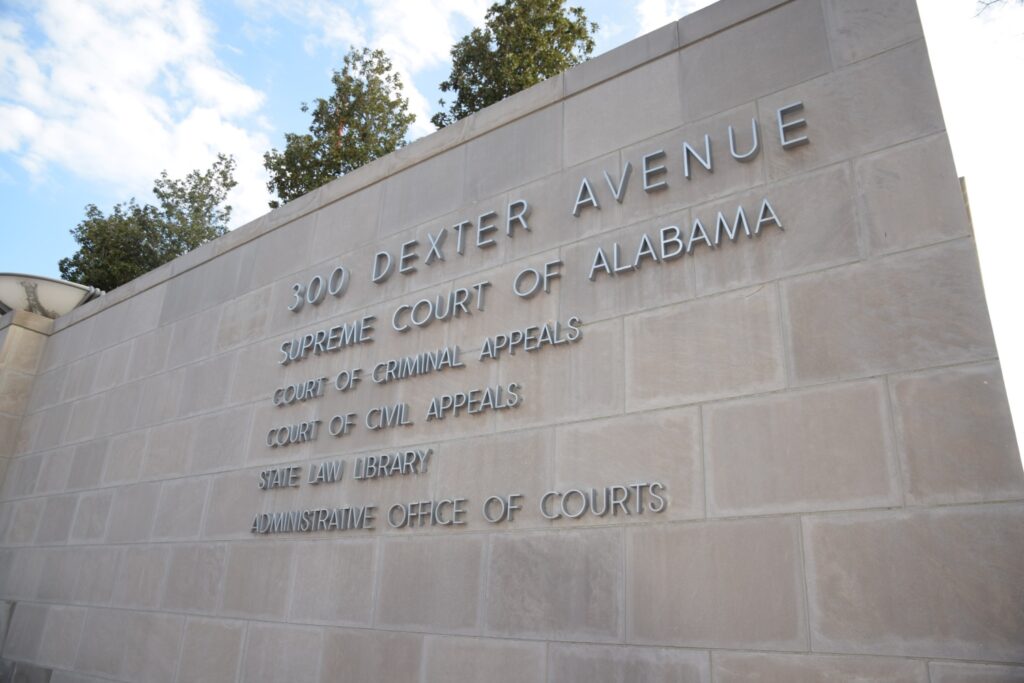
Major party qualifying ended on Friday. Four Republican Alabama Supreme Court Justices won election when no opponent – Republican or Democrat came forward. Justices Will Sellers, Tommy Bryan, and Jay Mitchell were all effectively re-elected as they face no Republican primary challenger. Write-in candidates are not allowed in party primaries. No attorney qualified for any of these races as a Democrat, so they are unlikely to face an opponent in the November general election. Chris McCool gave up his seat on the Court of Criminal Appeals to run for the open Place 1 associate supreme court justice seat. He also had no Republican or Democratic opponent qualify. On the Alabama Court of Criminal Appeals, Republican incumbent Judges Richard Minor and Bill Cole were both effectively re-elected when no Republican or Democratic opponent qualified for either race. Two Republicans: Rich Anderson and Thomas Govan, qualified for the open Place 2 seat that Chris McCool is leaving to run for Supreme Court. Both Govan and Anderson work in the Alabama Attorney General’s office. No Democrat qualified for that seat either, so Govan and Anderson’s race in the Republican primary on March 5 is likely to decide this race. On the Alabama Court of Civil Appeals incumbents Christy Edwards and Terry Moore were both effectively re-elected when qualifying ended without either facing any opposition. The only incumbent appellate judge in the state to face a challenger is Republican: Republican Chad Hanson at Place 2 on the Court of Civil Appeals is being challenged in the Republican primary by Stephen Davis-Parker. There are four candidates running for Chief Justice of the Alabama Supreme Court. Chief Justice Tom Parker, also a Republican, cannot run again due to the state’s arcane mandatory retirement age for judges provision. Associate Justice Sarah Stewart is giving up her place 1 seat on the court to run for Chief Justice. Former State Senator Bryan Taylor is also running for the office. Taylor is also a former legal counsel for Governors Kay Ivey and Bob Riley. On Friday, Montgomery attorney Jerry Michael Blevins also qualified to run for Chief Justice. Chief Justice is the only state appellate race that the Alabama Democratic Party is even contesting. Judge Greg Griffin will face the eventual Republican nominee for Chief Justice in the November general election. Griffin presently is a Circuit Court Judge in Montgomery’s Fifteenth Judicial Circuit Court. Thirty years ago, Democrats dominated the Alabama appellate courts. That changed in 1994 when retired Judge Perry Hooper Sr. defeated incumbent Sonny Hornsby in a contested race for chief justice. In the years since, Republican fortunes have continued to improve. Only one Democratic candidate, Doug Jones in 2017, has won any statewide race since 2008, and no Democratic judicial candidate has won a statewide race since Sue Bell Cobb was elected Chief Justice in 2006. Democrats are hopeful that Judge Griffin can change their fortunes next year. There is still a slight possibility that an attorney could still qualify as an independent or third-party candidate for one of these offices. To connect with the author of this story or to comment, email brandonmreporter@gmail.com
Birmingham, Alabama-based Hardware Park receives $250,000 Innovate Alabama grant, announces documentary
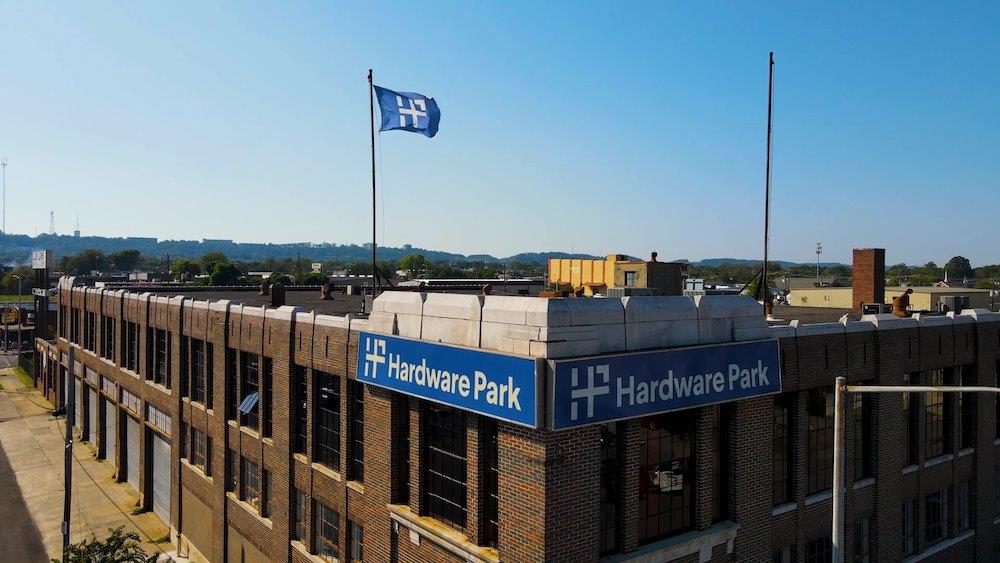
Hardware Park, Birmingham’s hub for physical product development, has been awarded a $250,000 grant by Innovate Alabama, fueling Hardware Park’s ongoing commitment to promote medical device innovation in Birmingham. The grant arrives as the nonprofit unveils a documentary chronicling its inaugural MedTech Design Experience, which brought together eight Birmingham metro high school students for a two-week exploration of medical device design and prototyping. “The Innovate Alabama grant and our documentary release underscore our strategy to intertwine education, innovation, and community engagement,” said Hardware Park Executive Director Mark Conner. Innovate Alabama, led by CEO Cynthia Crutchfield and 11 board members appointed by Gov. Kay Ivey, is Alabama’s first statewide public-private partnership focused on entrepreneurship, technology, and innovation. The partnership recently launched Innovate Alabama Network, a comprehensive resource to connect communities, nonprofits, and higher education institutions across Alabama fostering innovation in their local footprint. Fifty-one designees in 17 Alabama counties make up the group, which received $9.3 million in supporting funds from Innovate Alabama. Alabama Power is among the supporters of Innovate Alabama. “The Innovate Alabama Network is a major step forward to growing the entrepreneurial and innovation environment in Alabama,” Crutchfield said. “By providing funding and resources to our local communities, nonprofits, and higher education institutions, we are developing a statewide network for innovation programming and catalyzing entrepreneurship in all of our communities, both rural and urban.” Located in downtown Birmingham, Hardware Park covers two city blocks and houses a variety of businesses in manufacturing, engineering, and product design. The grant will significantly amplify Hardware Park’s ability to provide educational programming for budding medical device engineers in high school and college, according to Conner. The documentary, crafted by Birmingham locals Gabriel Talley and Robert Hill of Uphill Growth, vividly (and comically) captures the MedTech Design Experience journey, according to a Hardware Park news release. Slated for release on Nov. 14 at TechBirmingham’s Tech Tuesday event, the documentary portrays the journey of eight young aspiring engineers: Jeremy Harper (Ramsay High School), Enoch Booher (Vestavia Hills High School), Brooks Denson (Homewood High School), Caren Smith (Woodlawn High School), Joseph Drake (Carver High School), Matthew Eligwe (Hoover High School), Molly Elmore (Vestavia High) and Isaiah Williams-Scott (Restoration Academy). Hardware Park, Conner said, invites the community, potential entrepreneurs, and the media to delve deeper into the nonprofit’s initiatives, join the narrative, and support the journey towards a thriving medical device ecosystem in Birmingham. “Hardware Park’s dedication to hands-on engineering and design education is not only empowering our youth but also positioning our city at the forefront of medical technology advancements,” Birmingham Mayor Randall Woodfin said. “I am excited about the positive impact Hardware Park is bringing to our community.” Republished with the permission of The Alabama NewsCenter.
U.S. Department of Justice to join suit against AG Steve Marshall’s abortion prosecution threats
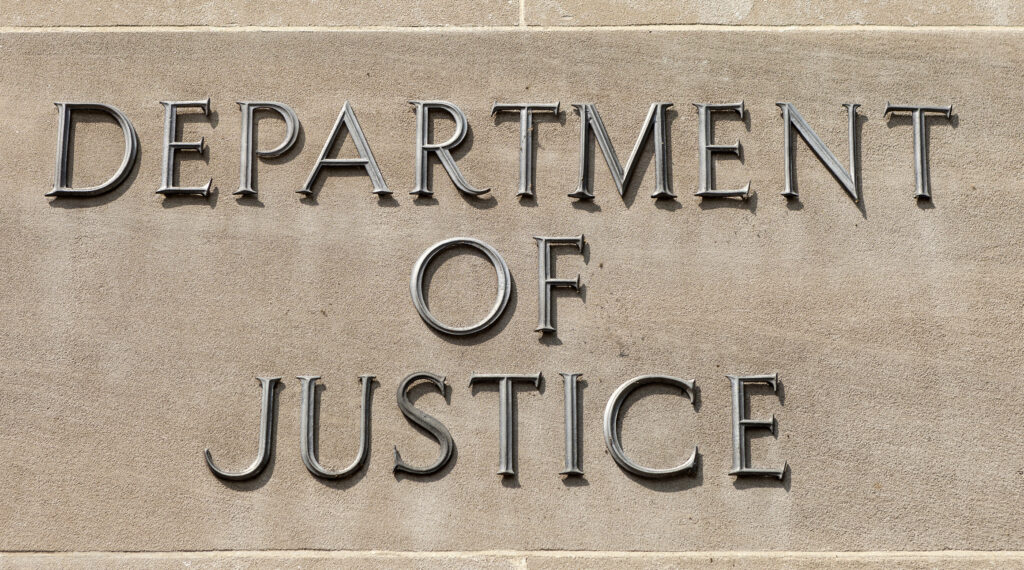
by Alander Rocha, Alabama Reflector The U.S. Department of Justice (DOJ) is joining a lawsuit seeking to stop Alabama Attorney General Steve Marshall from prosecuting those who help Alabama women obtain abortion services out of state. In a motion to intervene filed on Thursday, attorneys for DOJ argued that the right to travel between states was a fundamental American right, dating back to the Articles of Confederation. The filing cited a clause of the 14th Amendment in arguing that the right to travel is one of the rights of national citizenship provided by the Constitution. “The right to travel embraces more than just physical movement; it also protects an individual’s right to engage in conduct that is lawful in other states while in those states, regardless of their home state’s laws,” the motion stated. The lawsuit, filed on July 31 by former abortion providers in the state, cited comments made by Marshall in an August 2022 radio interview, where he suggested Alabamians helping people obtain legal abortion care in other states could face felony prosecutions. The lawsuit alleges Marshall’s comments and the threat of prosecution forced healthcare providers to cease providing critical information, counseling, and practical support to Alabamians exercising their constitutional right to access medical care across state lines. After the lawsuit was filed, Marshall renewed his threats to prosecute out-of-state abortion care. U.S. District Judge Myron Thompson postponed a hearing set for Oct. 31, and the hearing has not been rescheduled. The DOJ motion Thursday argued that states lack the authority to prohibit travel across state lines and can’t prevent third parties from helping individuals seek an abortion out-of-state. “The Alabama AG cannot undermine the right to travel by making each traveling individual an island unto themselves, prohibited from receiving assistance from anyone else within the state,” attorneys for DOJ wrote. Health care providers sue Alabama officials over threats of prosecution in abortion aid The motion further argued that the United States and its federal agencies have an interest in states not criminalizing travel, or the assistance of travel, across state lines to access healthcare. “The United States has a sovereign interest in preserving the proper functioning of the federal system, including by ensuring that one state does not improperly intrude into the affairs of other states, thereby protecting the integrity of the Union itself,” the motion stated. The motion also referenced Supreme Court Justice Brett Kavanaugh’s opinion in Dobbs v. Jackson Women’s Health Organization, the 2022 ruling that struck down the right to abortion. “As Justice Kavanaugh has explained, the question of whether a State may ‘bar a resident of that State from traveling to another State to obtain an abortion’ is ‘not especially difficult’ — ‘the answer is ‘no’ based on the constitutional right to interstate travel,’” according to the motion. The motion also argued that the state does not have the right to prevent organizations or individuals from providing help for out-of-state abortion care, noting that the Supreme Court has ruled that helping people travel is equally protected. When a state prevents third-party assistance for travel, the motion argued, it violates that right to travel. If restrictions were allowed for conduct that the state prohibits, that could open the door to “problematic state laws.” “A state that criminalized gambling could go further and prevent its residents from assisting with travel to casinos in Mississippi or Nevada, based solely on its policy disagreement with those states on that issue,” the motion said. The attorney general’s office had not responded to the motion as of Thursday evening. Alabama Reflector is part of States Newsroom, a network of news bureaus supported by grants and a coalition of donors as a 501c(3) public charity. Alabama Reflector maintains editorial independence. Follow Alabama Reflector on Facebook and Twitter.
Gov. Kay Ivey announces that Kenneth Eugene Smith will be executed on January 26

On Wednesday, Alabama Governor Kay Ivey announced that she had set the timeframe for the execution of Kenneth Eugene Smith to occur beginning at midnight on Thursday, January 25, 2024, and expiring by 6:00 a.m. on Friday, January 26, 2024. Smith was one of two men who were each paid $1000 to kill Elizabeth Sennett on behalf of her husband, a preacher who was deeply in debt and wanted to collect on her life insurance. The execution will be the first person ever to be executed by nitrogen hypoxia. This is the method previously requested by the inmate as an alternative to lethal injection. Smith was scheduled to be executed by lethal injection back on September 22, but the state of Alabama called off the execution when Alabama Department of Corrections workers were not able to access Smith’s veins before the deadline passed. Proponents argue that nitrogen hypoxia is more humane than electrocution or lethal injection. The Alabama Supreme Court has approved allowing the state to begin executing people by nitrogen hypoxia. Nitrogen hypoxia is a method of suffocating a person by forcing them to breathe pure nitrogen, starving them of oxygen until they die. Nitrogen is an inert gas that makes up 78 percent of the air we breathe, passing in and out of the body harmlessly with every breath. A person can breathe pure nitrogen and not immediately realize there is a problem, but their cells and organs are slowly being deprived of the oxygen needed to function and will rapidly start to break down. Someone deprived of oxygen will pass out in minutes and die soon after when the heart stops beating. To connect with the author of this story or to comment, email brandonmreporter@gmail.com.
Statewide burn ban issued by Gov. Kay Ivey

On Wednesday, Gov. Kay Ivey issued a statewide ‘No Burn Order.’ The Governor signed a statewide Drought Emergency Declaration – often called a ‘No Burn Order’ – prohibiting all outdoor burning in Alabama. This order is effective November 9, 2023, at 8:00 a.m. Central Standard Time. “Alabama is currently experiencing extremely dry conditions, which greatly increases the potential for dangerous wildfire activity,” said Gov. Ivey. “State Forester Rick Oates and his team have been working around-the-clock to keep our forests safe and fires contained, and I commend them for their efforts to protect Alabamians, our homes, and our wildlife. This declaration is meant to prevent unnecessary burning, reducing the chance of avoidable fires. I urge Alabamians to heed this warning.” According to the Alabama Forest Commission’s drought monitor, all 67 Alabama counties are experiencing unusually dry conditions, with 23 counties, mostly in North Alabama and Southwest Alabama, experiencing extreme drought. The Governor had previously issued a statewide Fire Alert on October 24. Wednesday’s order by the governor upgrades that. Since October 24, the Alabama Forestry Commission (AFC) firefighters have responded to 352 wildfires that have already burned 3,199 acres across the state. “These burning restrictions are a necessary result of the ongoing lack of precipitation and high probability of fuel ignition,” said State Forester Rick Oates. “During the last month, we’ve seen an increase not only in the number of wildfires but also in the size of those fires. With this prolonged drought, conditions are such that any outdoor fire can rapidly spread out of control, taking longer – and more firefighting resources – to contain and ultimately control. Even though we are predicted to get a small amount of rain this weekend, it will not be enough to lessen the wildfire danger.” The Drought Emergency Declaration order will remain in effect until rescinded by the State Forester. To report people burning in violation of this law, contact your local law enforcement. Over 72% of Alabama is forested, so forest fires present a real danger to both life and property, For more information on the current wildfire situation in the state, visit the Alabama Forestry Commission’s website. To connect with the author of this story or to comment, email brandonmreporter@gmail.com.
Republican qualifying in Special Election State Senate District 9 opens Monday

On Sunday, the Alabama Republican Party announced candidate qualifying for the Alabama Republican Party Special Election Primary in Alabama Senate District 9 will open on Monday, November 6, 2023, at 8:30 a.m. CST. The qualifying window will close on Tuesday, November 7, 2023, at 5:00 p.m. CST. All Republican candidates interested in running for this seat must file with the Party before this date. The bizarrely short qualifying period was set by Alabama Governor Kay Ivey (R) on Friday. Candidates have just two days to qualify for the Senate seat vacated last Monday by Sen. Clay Scofield (R-Guntersville), who left to pursue a role with the Business Council of Alabama (BCA). Anyone wishing to qualify for the Republican ballot can do so online or in person at Republican Party headquarters during the qualifying period. Senate District 9 covers portions of Blount, Marshall, and Madison counties. Candidates wishing to qualify as Democrats should visit the Democratic Party website for more information or visit Democratic Party Headquarters at 501 Adams Ave, Montgomery, AL 36104, during business hours. The Special Election Primary for the seat will be held on Tuesday, January 9, 2024. If a run-off election is needed, it will be held on Tuesday, February 6, 2024. The General Election will take place on Tuesday, April 23, 2024. Independent or minor party candidates have until January 9 to turn in their forms, fees, and ballot access signatures with the Secretary of State website. Major party qualifying for offices in the regular 2024 election ends on Friday, November 10. More information can be found on the major party websites. To connect with the author of this story or to comment, email brandonmreporter@gmail.com.
Gov. Kay Ivey awards $1 million to state groups to support innovation projects
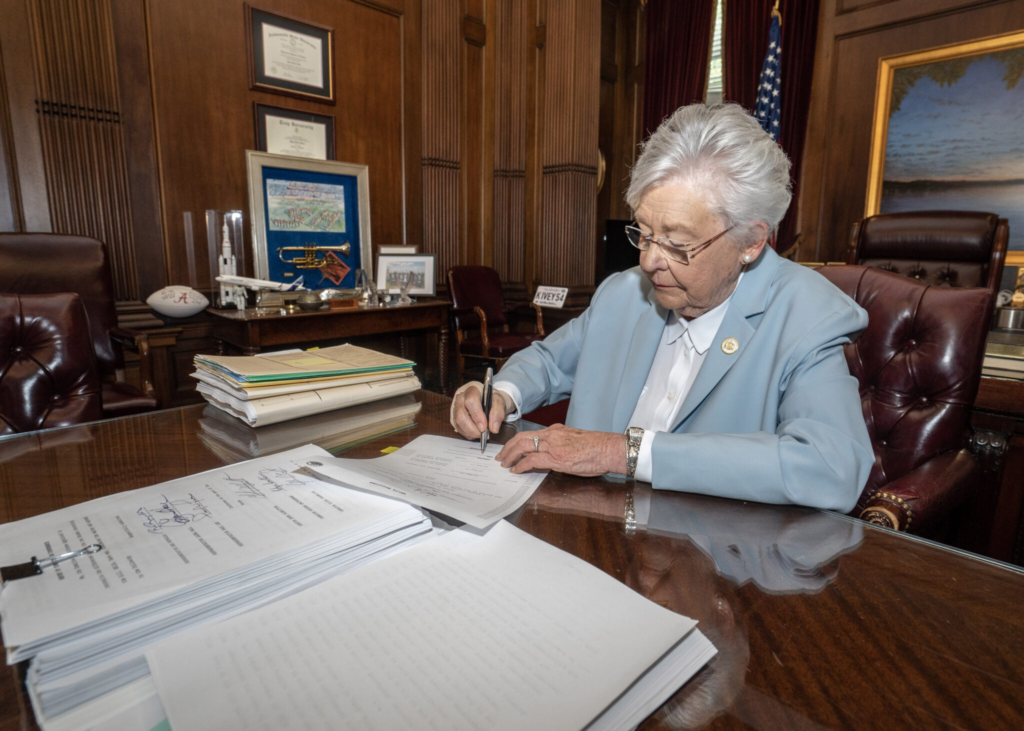
Gov. Kay Ivey has awarded nearly $1 million to assist Alabama research institutions and industries in producing innovative products and procedures that can help improve the lives of Alabamians. The grants from the Alabama Research and Development Enhancement Fund provide funds for research at Alabama universities and other institutions. The state-funded program helps create advances involving health and medicine, products and services, agriculture, and other fields of science and technology. “Alabama is fortunate to have world-caliber research institutions and top-notch scientists who are developing methods and products that will have lasting impacts on lives everywhere,” Gov. Ivey said. “I award these grants with praise for the wide-ranging contributions these institutions are making to advance our quality of life.” Gov. Ivey was recently in Huntsville at HudsonAlpha Institute for Biotechnology, one of the grant recipients, for the ribbon cutting of the Discovery Life Sciences headquarters on the HudsonAlpha campus. The research and development fund was created by the Alabama Legislature in 2019 and signed into law by Gov. Ivey as part of the Alabama Innovation Act. The Alabama Department of Economic and Community Affairs (ADECA) Energy Division is administering the research grant program. “ADECA is pleased to join with Gov. Ivey in commending these grant recipients and congratulating them on their past and future accomplishments,” ADECA Director Kenneth Boswell said. Those awarded grants are: ADECA administers a wide range of programs that support law enforcement, victim programs, economic development, water resource management, energy conservation, and recreation.
Alabama Supreme Court gives go ahead for execution by nitrogen hypoxia

Ralph Chapoco, Alabama Reflector Alabama is one step closer to becoming the first state to execute someone by nitrogen hypoxia. In a 6-2 decision handed down Wednesday, the Alabama Supreme Court allowed the state to proceed with the execution of Kenneth Eugene Smith, convicted of the 1988 murder of Elizabeth Sennett, under that method. Alabama Attorney General Steve Marshall said in a statement Wednesday that Sennett’s family had “waited an unconscionable 35 years to see justice served.” “Though the wait has been far too long, I am grateful that our talented capital litigators have nearly gotten this case to the finish line,” the statement said. Chief Justice Tom Parker and Associate Justice Greg Cook dissented but gave no additional comment. Nitrogen hypoxia has never been used on a human being as a means of execution, and professional veterinary associations have discouraged its use in the euthanization of animals. Smith’s attorneys said in a statement Thursday that they were disappointed in the decision and would continue to work through the judicial process. Smith currently has an appeal pending with the Alabama Court of Criminal Appeals claiming that attempting to execute him a second time violates his constitutional rights. “It is noteworthy that two justices dissented from this Order,” wrote Robert Grass, an attorney for Smith. “Like the eleven jurors who did not believe Mr. Smith should be executed, we remain hopeful that those who review this case will see that a second attempt to execute Mr. Smith – this time with an experimental, never-before-used method and with a protocol that has never been fully disclosed to him or his counsel – is unwarranted and unjust.” The order gives the Alabama Department of Corrections the authority to carry out Smith’s execution within the time frame set by Gov. Kay Ivey, which cannot happen less than 30 days from Wednesday, when the court published its decision. The Attorney General’s Office filed a motion with the Alabama Supreme Court back in August, requesting the court set a date for Smith’s execution. Smith’s attorneys requested the court reject the state’s motion in September, stating that nitrogen hypoxia has not been tested and only recently released the protocol for using that method of execution. A jury convicted Smith in 1996 in the plot to murder Sennett and voted to sentence him to life without the possibility of parole. The judge in the case overrode the jury recommendation and sentenced Smith to death. Alabama abolished judicial override in 2017, the last state in the country to do so. But the rule was not made retroactive. In May the U.S. Supreme Court upheld a lower court’s decision that allowed him to select his method of execution, in this case is death by nitrogen hypoxia. The high court turned down the appeal by the Alabama Department of Corrections, which argued that Smith was pursuing a delaying tactic. Smith was scheduled to be executed in November following the botched executions of Joe Nathan James Jr. and Alan Miller. However, his execution was called off after ADOC staff repeatedly failed to secure a vein to carry out the execution. Smith’s attorneys wrote in a brief last January that he “continues to experience physical and emotional pain, including lingering pain in his arm, near his collarbone, back spasms, difficulty sleeping, and likely post-traumatic stress disorder” from the failed execution. Death through nitrogen hypoxia became an available method for executing people on death row after the Legislature passed a bill sponsored by Sen. Trip Pittman, R-Montrose, allowing its use. He said that the method was more humane than lethal injection. Doctors and medical ethicists have criticized those claims. “Last year, after Alabama tortured multiple people in botched executions using lethal injection, we encouraged the state to pursue an independent evaluation of its execution protocols,” said Alison Mollman, interim legal director of the ACLU of Alabama. “Governor Ivey and the Alabama Department of Corrections failed to complete an independent review and instead insisted the problem was not having enough time to kill someone. Now, at the urging of Attorney General Steve Marshall, Alabama is rushing to put a man to death with an untested, unproven, and never-before-used method of execution. As Alabama races to experiment on incarcerated people with nitrogen gas, they put the lives of correctional staff, spiritual advisers, the media, and victims at risk by potentially exposing them to an odorless and lethal gas. Using this method has no benefit on public safety. Governor Ivey and Attorney General Marshall have a responsibility to stop the execution of Mr. Smith.” The Death Penalty Information Center, a nonprofit that students and collects data on the death penalty, criticized Alabama’s move toward nitrogen executions in a statement on Thursday. “No state has ever used nitrogen in an execution, and there are still too many unanswered questions for Alabama officials to responsibly move forward with this protocol,” the statement said. “Mr. Smith has already endured one botched execution; he should not now face another attempt that carries this much risk and uncertainty.” Alabama Reflector is part of States Newsroom, a network of news bureaus supported by grants and a coalition of donors as a 501c(3) public charity. Alabama Reflector maintains editorial independence. Follow Alabama Reflector on Facebook and Twitter.
Bryan Taylor receives endorsements from veteran GOP district attorneys
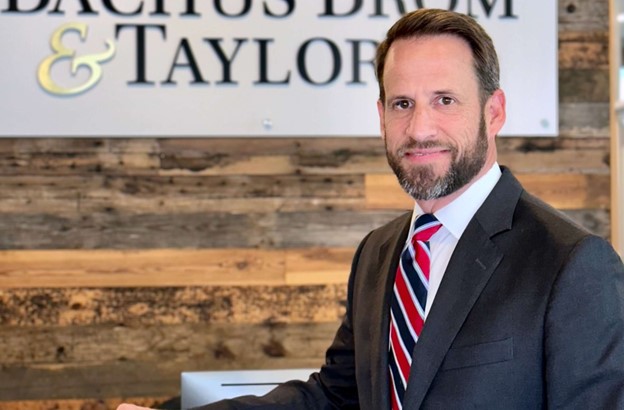
Former State Senator Bryan Taylor (R) announced on Tuesday endorsements from three Republican prosecutors. David Barber and Brandon Falls, both former DAs for Jefferson County, as well as Randall Houston, former DA for Autauga, Elmore, and Chilton Counties, have endorsed Taylor’s campaign for Chief Justice. “I’ve known him for over a decade, and I can say without a doubt that there is no better Republican candidate for Chief Justice than Bryan Taylor,” said Barber. Barber served more than 23 years as Jefferson County’s District Attorney. “Bryan Taylor is a former prosecutor, a conservative stalwart, and a principled believer in the rule of law,” Barber added. “I’m proud to support Bryan Taylor for Chief Justice because I’m witness to his tireless work ethic, his conservative philosophy, and his devotion to upholding the law and the Constitution as written.” Brandon Falls succeeded Barber as Jefferson County DA in 2008 and served over eight years in that role. “Bryan Taylor is fearless, and that’s the kind of Chief Justice we need right now,” Falls said. “I support Bryan because Alabama deserves a Chief Justice who understands the job and the needs of prosecutors, who has been in the trenches, and who has a record of holding criminals accountable under the law.” Randall Houston served 32 years as the DA for the 19th Judicial Circuit, which covers Autauga, Elmore, and Chilton Counties. Taylor represented Houston’s community when Taylor served in the Alabama State Senate from 2010 to 2014. “I know Bryan Taylor is a stalwart supporter of law enforcement and an unrelenting advocate for crime victims,” Houston said. “Whenever we came to him with a need—for more resources or for strengthening the law—district attorneys could always count on Bryan Taylor to get it right,” Houston added. “He has a profound respect for the Separation of Powers and will faithfully apply the law as written and not legislate from the bench.” Houston recalled that as a state senator, after a series of three tragic deaths caused by drunk boaters on Alabama lakes, Taylor strengthened the law, allowing DAs to seek the same felony penalties for homicides caused by drunk boating that apply to vehicular DUI homicides. He said Taylor also advanced legislation increasing compensation for victims of violent crime. As Governor Kay Ivey’s chief legal advisor from 2017 to 2019, Taylor spearheaded the governor’s investigation and overhaul of the state’s Pardons and Paroles Board after Jimmy O’Neal Spencer committed a triple homicide in Guntersville while on parole under the Board’s supervision. Taylor is an Iraq War veteran and former military prosecutor. As a state senator, he spearheaded passage of the state’s first Uniform Code of Military Justice. Taylor also introduced legislation to crack down on the state’s illegal casinos after casino owners were federally prosecuted for bribery. That made him a lot of enemies in Montgomery. Illegal gambling bosses continue to operate at least 30 illegal gambling operations in open defiance of the Alabama Constitution and state law by making large campaign contributions to politicians from both political parties, including judges, sheriffs, and legislators. Taylor also played a major role in writing and enacting sweeping reforms to strengthen the state’s ethics laws, including a bill to make it a crime for public officials to accept lavish gifts, meals, or junkets from lobbyists. There is an ongoing effort underway to weaken those 2010 ethics laws. Taylor is a founding member of the law firm of Bachus Brom & Taylor, with a concentration in appellate and constitutional law, election law, business law, and civil litigation. Taylor lives in Shelby County with his three children, where they attend Double Oak Community Church. Current Chief Justice Tom Parker (R) is prevented from running for another term because of Alabama’s archaic age limits on judges. Associate Justice Sara Stewart (R) has also qualified to run for Chief Justice. Greg Griffin has qualified to run as a Democrat for Chief Justice. The major party primaries are on March 5. To connect with the author of this story or to comment, email brandonmreporter@gmail.com.
Gov. Kay Ivey announces special election dates for Senate District 9

On Wednesday, Governor Kay Ivey signed a proclamation setting special election dates for Alabama Senate District 9. This seat was previously held for the last 13 years by Sen Clay Scofield (R-Guntersville), who resigned Monday to take a position as the Vice President of the powerful Business Council of Alabama (BCA). Governor Ivey set the special primary election for Tuesday, January 9, 2024, and the special primary runoff, if necessary, for Tuesday, February 6, 2024. The special general election is set for Tuesday, April 23, 2024. “Majority Leader Scofield has been a strong voice for the people of Senate District 9 for more than 13 years, and I have no doubt that he will continue to serve our state well in his next chapter,” said Gov. Ivey. “Clay and I have worked together both while I served as lieutenant governor and now as governor. Certainly, I can attest for all he has done for the people in North Alabama and Alabamians all across our state. I encourage everyone in this district to get out and vote during this special election and send another strong voice to Montgomery.” Gov. Ivey set a very short qualifying period of just seven days for this special election. The deadline for qualifying with major political parties will be Tuesday, November 7, 2023, at 5:00 p.m. The deadline for all independent candidates and minor parties to submit their paperwork, including ballot access petitions, is Tuesday, January 9, 2024, at 5:00 p.m. Senate District 9 represents portions of Blount, Madison, and Marshall Counties. State Representative Brock Colvin (R-Guntersville) has already announced his intention to run for this position, as has State Representative Wes Kitchens (R-Boaz). At least three other candidates are reportedly strongly considering running for this open state Senate seat. On Monday, the GOP state senators elected Steve Livingston (R-Scottsboro) to replace Scofield as Senate Majority Leader. The Alabama Senate pays $53,913 a year and is a part-time position. To connect with the author of this story or to comment, email brandonmreporter@gmail.com.


